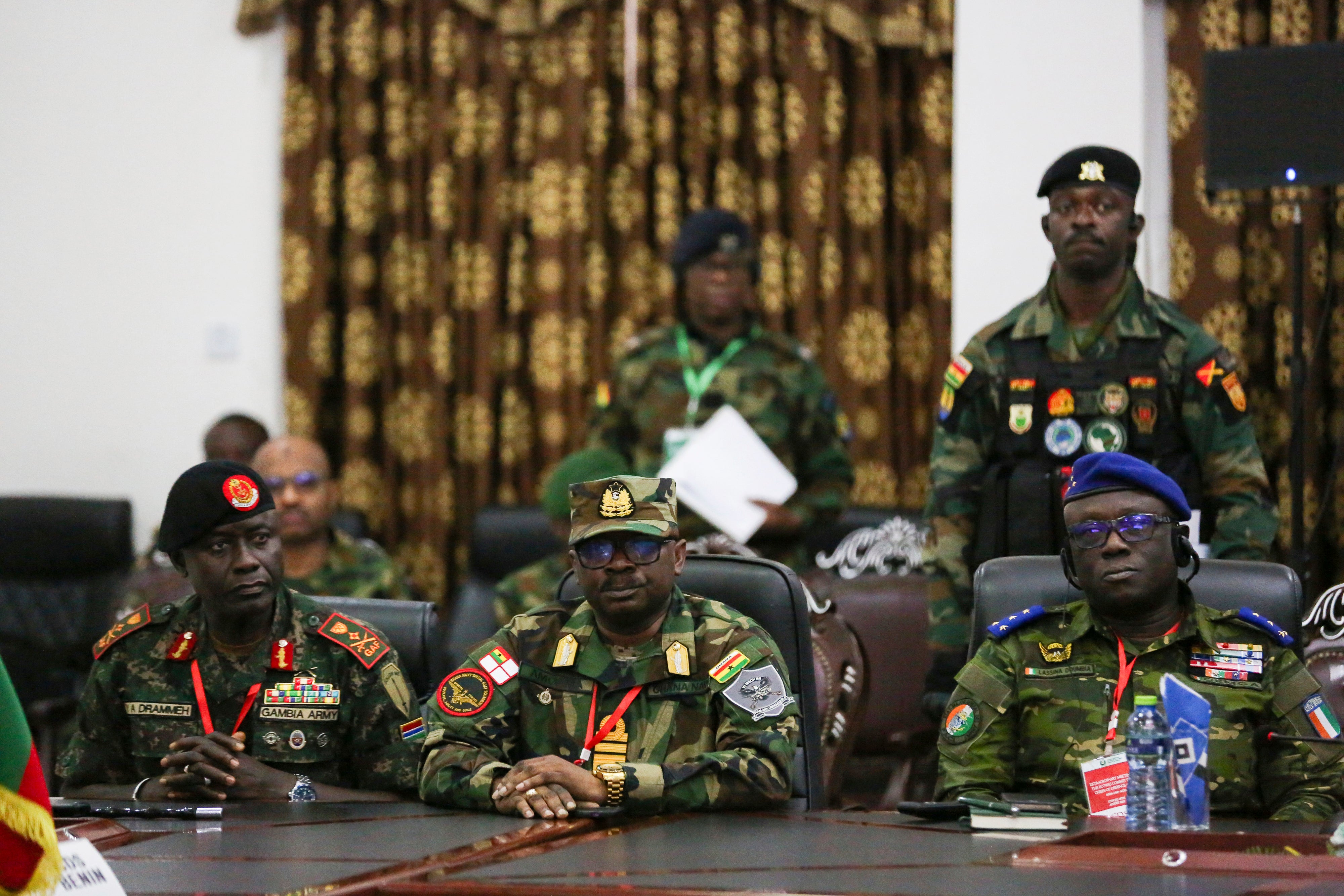A scramble of last-ditch diplomacy aims at finding a peaceful solution to Niger's deepening crisis
A delegation from regional nations is expected to arrive in Niger in a last-ditch diplomacy effort to reach a peaceful solution with mutinous soldiers who ousted the country’s president last month

A delegation from regional nations is expected to arrive in Niger in a last-ditch diplomacy effort to reach a peaceful solution with mutinous soldiers who ousted the country's president last month.
The representatives from the West African regional bloc, ECOWAS, could arrive in the capital, Niamey, as early as Saturday and would join efforts by United Nations Special Representative for West Africa and the Sahel, Leonardo Santos Simao, who came on Friday, in trying to facilitate a resolution to the ongoing crisis.
On Friday U.N. spokesman, Stephane Dujarric, said Simao would meet with the junta and other parties to try and facilitate a swift and peaceful resolution to Niger’s crisis.
“What we want to see is a return to the constitutional order. We want to see the liberation of the president and his family and restoration of his legitimate authority,” he said.
ECOWAS ordered the deployment of a “standby force” on August 10 to restore constitutional rule in the country.
The soldiers who overthrew Niger's democratically elected President Mohamed Bazoum in July have quickly entrenched themselves in power, rebuffed most dialogue efforts and kept Bazoum, his wife and son under house arrest in the capital.
On Friday, ECOWAS commissioner for peace and security, Abdel-Fatau Musah said 11 of its 15 member states agreed to commit troops to a military deployment saying they were “ready to go” whenever the order was given.
The 11 countries don’t include Niger itself and the bloc’s three other countries under military rule following coups: Guinea, Mali and Burkina Faso. The latter two have warned they would consider any intervention in Niger an act of war. On Friday, Niger's state television said that Mali and Burkina Faso had dispatched warplanes in a show of solidarity to the country.
Friday's announcement is the latest in a series of empty threats by ECOWAS to forcefully restore democratic rule in Niger, say conflict analysts.
Immediately after the coup, the bloc gave the junta seven days to release and restore Bazoum, a deadline that came and went with no action.
“The putschists won’t be holding their breath this time over the renewed threat of military action,” said Ulf Laessing, head of the Sahel program at the Konrad Adenauer Foundation, a think tank. Meanwhile, the mutinous soldiers are cementing their rule and appointing loyal commanders to key units while ECOWAS has no experience with military action in hostile territory and would have no local support if it tried to intervene, he said.
“Niger is a very fragile country that can easily turn, in case of a military intervention, into a failed state like Sudan,” said Laessing.
ECOWAS used force to restore order in member countries in 2017 in Gambia after longtime President Yahya Jammeh refused to step down after he lost the presidential election. But even in that case, the move had involved diplomatic efforts led by then-presidents of Mauritania and Guinea while Jammeh appeared to be acting on his own after the Gambian army pledged allegiance to the winner of the election, Adama Barrow.
The humanitarian situation in the country is also on the agenda of the U.N.'s West Africa and Sahel special representative.
Before the coup, nearly 3 million people were facing severe food insecurity and hundreds of thousands were internally displaced, according to CARE, an international aid group. Economic and travel sanctions imposed by ECOWAS after the coup coupled with the deteriorating security will have dire consequences for the population, the group said.
Before, Western countries saw Niger as one of the last democratic nations it could partner with to beat back a growing jihadi insurgency linked to al-Qaida and the Islamic State group and have poured millions of dollars of military aid and assistance into shoring up Niger’s forces.
Since the coup, former jihadis told The Associated Press that militants have been taking advantage of the freedom of movement caused by suspended military operations by the French and the U.S. and a distracted Nigerien army that is focusing efforts on the capital.
Last week, at least 17 soldiers were killed and 20 injured during an ambush by jihadis. It was the first major attack against Niger’s army in six months. A day later, at least 50 civilians were killed in the Tillaberi region, by extremists believed to be members of the Islamic State group, according to an internal security report for aid groups seen by the AP.
“While Niger’s leaders are consumed by politics in the capital, the drumbeat of lethal jihadist attacks goes on in the countryside,” said Corinne Dufka a political analyst who specializes in the Sahel region.
“The recent attacks should motivate all parties to work for as speedy and inclusive a transition as possible so they can get back to the crucial business of protecting civilians from the devastating consequences of war. In due time, Nigeriens and her partners should look long and hard at why and how democracy in Niger faltered,” she said. —————
Associated Press reporter Edith Lederer contributed from the United Nations.
Bookmark popover
Removed from bookmarks